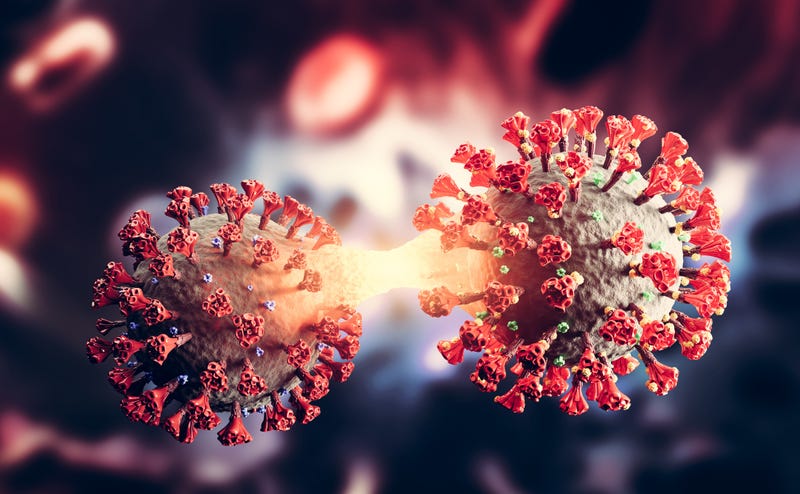
SAN FRANCISCO (KCBS RADIO) – Yet another COVID-19 variant has emerged, the BA.4.6, and it is beginning to dominate in circulation in the U.S.
As it spreads, scientists are trying to determine if the new variant is any better at evading immunity than previous ones.
So far, there doesn't appear to be a big distinction between the new variant and those that are already known, according to Dr. David Dowdy, an epidemiologist with the Johns Hopkins Bloomberg School of Public Health on KCBS Radio's "Ask an Expert" with Melissa Culross and Eric Thomas on Friday.
"This is just yet another offshoot of the most recent, BA.4 lineage," he said. "We expect new subvariants to be emerging, and they are."
This comes as the new, much-anticipated omicron-specific COVID-19 vaccine is slated to become available in the next month or two.
But it's likely that the new shot will still be able to protect against this new variant relatively effectively, said Dowdy, since it's an offshoot of BA.4.
"We're always going to be playing a little bit of catch up but I think it’s also important to recognize that even our very earliest vaccines are still very effective in preventing serious illness and death," he said. "Even if they don't prevent you from getting infected with the circulating strain."
And the strains the continue to emerge are not necessarily going to cause more serious illness.
"While the virus is trying to find ways to infect us and transmit from one person to the next, it's not necessarily trying to find ways to kill us," said Dowdy.
Each of the new subvariants are slightly different than the last, and have a slightly higher advantage with causing infection.
"It doesn't necessarily mean that it’s becoming more and more transmissible – just like we're playing catch up the virus is always trying to stay a little step ahead and keep itself a little harder to recognize from the immunity we've built up in our own bodies," he said.
But this new offshoot isn't much of a cause for concern as previous strains.
It isn't even all that new, it was first detected about two months ago, according to Dowdy. And it’s not nearly as pervasive as its predecessors ince it’s begun to spread, it only accounts for about 6% of cases right now across the country.
Follow KNX News 97.1 FM
Twitter | Facebook | Instagram | TikTok



